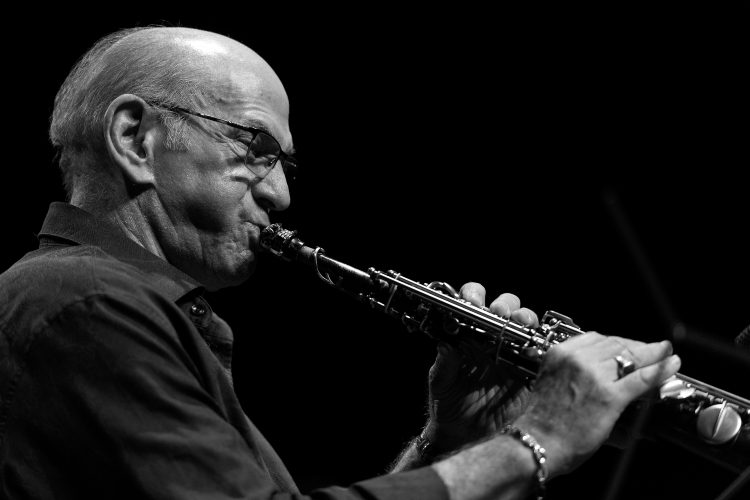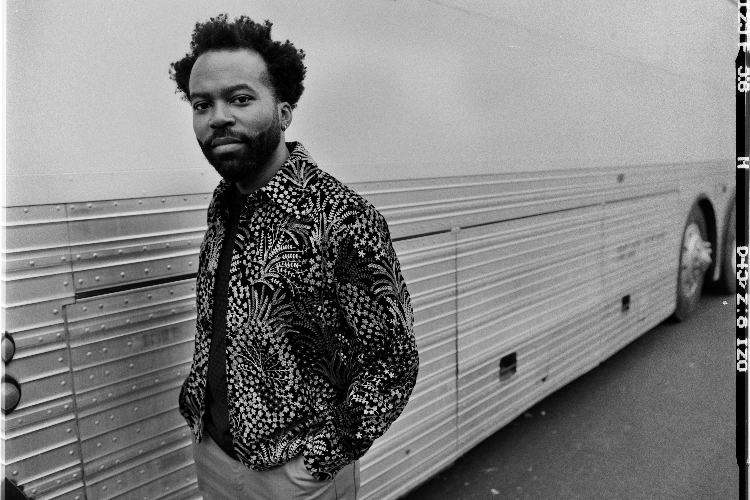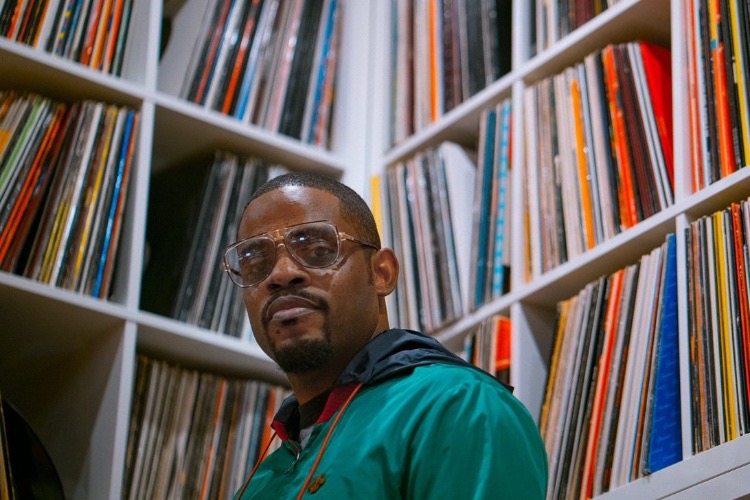Eclecticism Continued: A Conversation with Dave Liebman (Part One)
|
Getting your Trinity Audio player ready...
|
For over fifty years, Dave Liebman has been at the forefront of musical creativity. Whether his time as a sideman with artists including Miles Davis and Elvin Jones or his own works like Lookout Farm (ECM, 1973) or The Loneliness of a Long Distance Runner (CMP, 1986) or his various recordings with Quest, he has continued to push the jazz idiom forward, including on his most recent album, Selflessness (Dot Time, 2021). As an educator, the saxophonist has also served a major role in nourishing future generations of artists to create their own incredible works. In short, there is a reason why the National Endowment for the Arts named Liebman a Jazz Master in 2011, one of the highest honors that can be bestowed upon a jazz artist.
Sometimes lost in the discussions on Liebman’s illustrious career is the breadth of his musical interests. He is incredibly prolific, with over 500 albums to his credit and more than 250 as a leader. Across those, he shows a broad scope, exploring classical, rock, free jazz, Indian music, and more. At age 75, he continues to push the music forward.
We are honored to sit down with Liebman to discuss various moments in his career thus far, from early jazz-rock fusion with Ten Wheel Drive in the late 1960s to his current Expansions quintet and a recent trio performance with Adam Rudolph and Tyshawn Sorey.
PostGenre: How do you feel the pandemic has impacted you creatively?
Dave Liebman: To be honest, the pandemic made it hard for me to do much of anything I would think of as consequential. During the shutdowns, you were faced with a few different decisions: Do you go to your horn and just kind of play? Or do you write original music? Or do you just do nothing and watch a lot of Chicago PD? [laughing].
There are some people who really took advantage of technology, sitting at a computer for eight hours at a time to do something creative. But that is sort of a young man’s game in a way. I did a few things last year but, overall, I was a little less involved musically than I would normally be. Of course, now I’m busy every day. I’m overdubbing, recording, and trying to get music out for next January. At this point, the virus seems to be abating which is great. Let’s hope for the best.
PG: Speaking of new projects, you recently performed at The Jazz Gallery in a trio with Adam Rudolph and Tyshawn Sorey.
DL: It was a lot of fun.
PG: How did that come about?
DL: Well, Adam and I have done a couple of things before. We have two recordings out. The first [The Unknowable (Rare Noise, 2018)] was with percussionist Tatsuya Nakatani, who is a gong expert. The second was with Hamid Drake [Chi (Rare Noise, 2019)].
So, Adam and I had already worked together. He reached out to me and asked if I wanted to play with him again but with the third seat being someone else from a different scene. Adam suggested Tyshawn because they had worked together and he was impressed with Tyshawn’s musicianship. I was happy to have Tyshawn join us for that gig. We played two sets. It was fun and we had a good time.
PG: Do you have any plans to get that trio together again or to record?
DL: I hope there’s something in the future. I can’t state any definite plans but hopefully, that will happen.
PG: Tyshawn has been performing more on the piano the last couple of years. Interestingly, you started on the piano. Granted you were only a kid at the time but how do you feel like starting with the piano has shaped your saxophone performance skills?
DL: My mother insisted that I take at least two years of classical piano. She wasn’t a musician but somehow had an innate understanding that it was a good thing to play the piano. Even if you don’t want to do music as a career, it is good to learn how to play the piano because it helps you understand music more. Being a musician, it is a necessity to understand the piano. The piano is a necessary tool for writing and understanding the music that might be laid out in front of you.
With the piano, you’ve got the whole 88 keys to work with and that’s a good thing.
As far as whether playing piano has given me a background that may have changed my saxophone performance, I don’t really know. I can transpose on sight. I can easily move music between the Bb of soprano and tenor and Eb of alto or concert C of the piano. In the old days before computers, it was a very helpful skill. People would call you up just to transpose. By the time I was 14 or 15, I could transpose something faster than I could read what was on the page. I would automatically go steps higher or lower. Now it is a mundane point because you can press a button on a computer and get the same part automatically written out for a hundred-piece orchestra which is a good thing. It saves a lot of time and trouble and looks better… my penmanship in music was never good.
PG: One of the things that is noticeable in your career, especially the earlier part, was the emergence of music that fused jazz and rock and roll. One of those early bands was Ten Wheel Drive. How do you feel your time with that band has shaped your other music?
DL: Ten Wheel Drive was a unique situation. The woman in front, Genya Ravan, really had a Janis Joplin thing going on. She was influenced by the blues and was a very powerful force. The guy who wrote Ten Wheel Drive’s music, Michael Zager, ended up becoming well known for disco music. Our band had a five-horn section, which was rather unusual… though, obviously, bands like Chicago or Blood Sweat & Tears had really great horn sections as well at that time. Ten Wheel came at the beginning of the so-called fusion period. A lot of musicians were playing in bands with horns. That development was great because as my generation was coming up, a lot of music focused only on guitars, electric bass, and drums. It was hard before these fusion bands to find a lot of work as a horn player. Fusion allowed us back in again.
Ten Wheel Drive affected me in the sense that it was the present time and, like it or not, the music was interesting. Mike Zager wrote really well. He studied with someone pretty prominent… can’t remember if it was Hammerstein or Sondheim… and he was a pretty educated guy. And the other co-leader was a good guitar player. I played soprano, piano, flute, and clarinet. I was a one-man arsenal. [laughing]. Actually, my time with that band is what got me into the soprano. The band had popularity up to a point. We did some big gigs. And then the band ended, like most bands, with not a pleasant parting. But that was the height of fusion music in 1968, 1969, and 1970.
PG: When people think of fusion, certain names often seem to pop up. You mentioned a few and of course there’s also Larry Coryell, Miles Davis, Mahavishnu Orchestra, Return to Forever, Weather Report, and many others. In a lot of those cases, it was essentially the musicians getting influenced by rock music and seeing a way to combine it with jazz. A little before that, however, Charles Lloyd was having huge crossover appeal to rock audiences with his acoustic quartet on Forest Flower (Atlantic, 1967). Although it obviously sounded different than those other groups, do you feel like his quartet, in some way, laid the groundwork for fusion as well?
DL: I studied with Charles. I hung out with him more or less every Sunday for a year. I was basically his go for guy, which was fine with me. He was a great guy and had huge success with Forest Flower. On that album, there is a lot of stretching out. At one point Keith [Jarrett] plays a very common chord progression. People liked it because it was kind of major and lyrical yet it was ok for banging. [laughing]. It served its purpose.

Music is a time machine of a particular period. Even the way we dressed and the lifestyle we chose. Standing next to the rock guys were these straight musicians doing studio gigs which were big at that time. Several of them were good improvisers who enjoyed the crossover appeal of the music that was being played who got roped into playing a G7 chord forever. But it was fun up to a point and I’m glad I did it. And it got me out of my straight day gig.
PG: And what was that?
DL: I was a school teacher in New York City. My parents were both teachers. I graduated college and ended up substitute teaching for $35 per day, which was just enough to cover food and expenses. I did that right into my playing with Elvin [Jones] and Miles [Davis].
PG: You’ve also been heavily involved in music education over the years. Because you did start as a substitute teacher and your parents were teachers, was it natural for you to have a significant role in music education?
DL: When I look back it made perfect sense for me being a teacher. I didn’t know it in the 70s but that is what happened. By the 80s, I had it together and it became more common to go to music/jazz schools and do two-day workshops or something similar. In college, I had what you would call a liberal arts education. A little teaching, playing, writing articles. The path to music education looks a lot smoother now than when I was in the middle of it.
PG: As far as a liberal arts education, you were a history major, correct?
DL: American history at NYU. I even won two prizes for essays. One was on the battle of Leyte Gulf, the largest naval battle of World War II. And the other was on the Turner Thesis, the idea that the frontier of the American West no longer existed and America needed to find another way to flex its muscles. It was a learning period. Around that time I also moved into my first loft on West 19th Street. Dave Holland and Chick Corea lived in the building as well and it was a true education in contemporary music and culture because they were into everything, as I was getting to be as well.
PG: Do you think formalized training in history has influenced your projects going back and looking at the music of Coltrane or some of the other historical greats?
DL: Again, it’s just having a well-rounded education. You will have to touch on artists like Coltrane if you are making jazz music. If you are making classical music, you would be talking about Stravinsky. Those are sort of givens. I did realize in my mid-20s when things were settling down into a routine that the fact I had a college education made me a little different than most around me. In those days, not everybody went to college like they do now. I was definitely in the minority on that. My parents were strongly in favor of my going and said that I would be grateful for having done so.
The end result was that I was educated and had a sense of critical thinking and a feel for history. I briefly considered going to law school because I thought I could use that as an opportunity to save the world!!
But let me ask you the question….did studying history have any effect on you either short term or long term? [Ed. note – the author was once a history major with a focus on American history but does not work in a history-focused area].
PG: Sure.
DL: We got a little bit of the gold that comes with studying. It makes you feel a little more balanced in your life. In the ‘60s and ‘70s when things were going crazy with music, sex, drugs, and everything else, this background gave me a better grasp of what was going on. Later with my students, I ask them to look outside the music box…..in fact, any box. It’s important to also look at politics, economics, religion, and other subjects. I think I got a better idea of what was going on around me from having studied a subject like American history.
PG: One cool thing about history is how time just continues to progress. Things could be happening now that we do not fully appreciate but in the future, we could be looking back at that moment as some major point on the path to the current circumstances.
DL: That’s true.
PG: And that kind of segues into a question about your time with Miles. When it first came out, many critics blasted On the Corner (Columbia, 1972) and now it is considered by many to be a masterpiece that was just way ahead of its time. What was it like working on that recording?
DL: It was all over the map.
On the Corner reflected Miles’ attempt to put something together. I’m not sure he knew what he was doing but he was working on instinct. He didn’t have Wayne [Shorter], Ron Carter, Chick Corea, Keith Jarrett, and the rest. A lot of us took Miles to heart and became leaders of our own bands. All of the cast and crew went out and developed their own legacy. And because of that, Miles could be a little more spontaneous in his musical decisions. He would come up on the stage and do his own thing. If you were there at the right time and in the right spot, you would get a little bit of it.
But Miles’ personality was molded by his fame as someone who represented the music of the last fifty years. I got along with Miles very well. He would say something very short about music … as many of the guys from that era did… and you had to glean something from it that you could use. I could see what he was trying to do and how I could fit in with it. When Miles went to play the keyboard, he didn’t have a lot of technique on it, but it gave him another texture to use. He graduated from the idea of rhythm, harmony, and melody being static to something completely ad hoc and improvised with a focus on texture. The emphasis was no longer melody but color and ambiance. As far as what came out of the studio, it really came down to [producer] Teo [Macero]. Teo is really important and doesn’t really get the credit he deserves for pulling together what was recorded and putting it into an LP.
But as far as understanding what Miles was going for, when I was hanging out with him one night I told him I finally understood what he was trying to do. He responded “Voila!” [laughing]. Miles was very funny and had a real sense of humor, even if expressed in only three to five words at most. He was basically asking where I had been.
I have some good memories with Miles, but he also had a Jekyll and Hyde personality. He could be a maniac at times. But his home base was always to be really curious about music and into it. And when we would go to a studio, he worked it like it was his living room. It’s like when I saw [Frank] Sinatra. Sinatra had 33,000 people in his living room, smoking a cigarette and drinking scotch. And Miles treated his making music similarly, especially in the studio.
The second part of our conversation with Dave can be found here.
More information about Dave Liebman can be found on his website.
Dave Liebman’s Expansions Quintet’s new album, Selflessness, is now available on Dot Time Records. Empathy, his five-CD set with longtime collaborator Richie Beirach and special guest Jack DeJohnette, can be purchased in our Amazon Affiliate store.




3 thoughts on “Eclecticism Continued: A Conversation with Dave Liebman (Part One)”